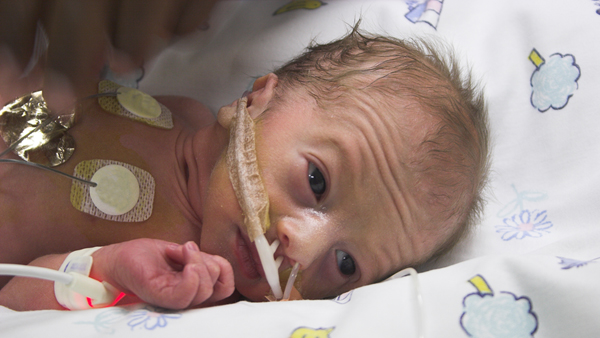Premature: born too soon
Having a premature baby can be distressing. As a parent, it can be hard to find your role when your newborn is being taken care of by the hospital staff. Still, you are very important to your child.
Read time: 2 m
Verified by Emma Fransson
Certified psychologist
When a premature baby is stable, it is usually recommended that the child receive kangaroo care, which means being skin-to-skin with a parent. It has been shown to promote survival because it is a very good way to maintain body temperature, as well as to help with regulating immature digestion and blood sugar levels. It is also very calming as a parent to feel your newborn's heartbeat and to be close to them. Parents of premature babies describe that it can feel unreal to become a parent when it happens very early and especially if the birth came before the baby is stable enough to hold in their arms. Having a child in the hospital can also mean complications with life in general. Older siblings or pets can feel neglected. Leaving the hospital can feel like an abandonment of the newborn that must stay there. If you are two parents - try to take time off together (sick, holiday, or parental leave) to support each other. Ask your family and friends for help with the practical needs of your household.
Having a premature baby who is a little closer to full term, who is born in weeks 34-36 can have its very own challenges. Even if neonatal care is not needed, it can be difficult to feel adequate as a parent. Some late premature babies need food every three hours, but may not be aware that much and may therefore be more difficult to read and take longer to get to know. Talk to healthcare professionals if you have any questions or concerns.
In retrospect, it can be difficult to remember everything that happened if you have spent a long time in the hospital. One tip is to write in a journal and document the first days and weeks together, it can be nice to go back and read through, remember and process what happened. Having a premature baby can also make it harder to recognize your family in most descriptions of babyhood. Contact a parent association for premature parents or ask hospital staff for tips and advice.
Verified by Emma Fransson
Certified psychologist
More from Preggers
Hundreds of related articles, podcasts & more waiting for you in the Preggers app.
Download Preggers today.

